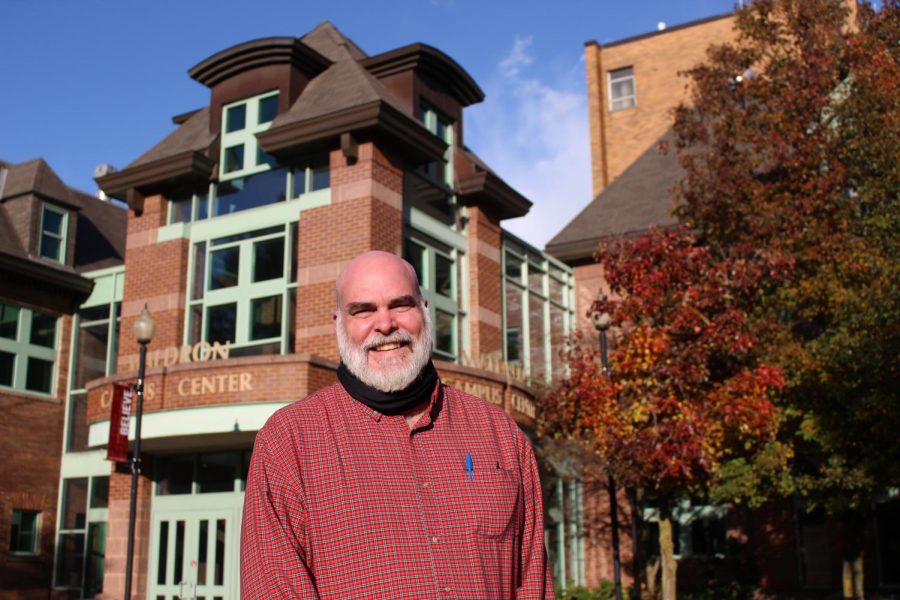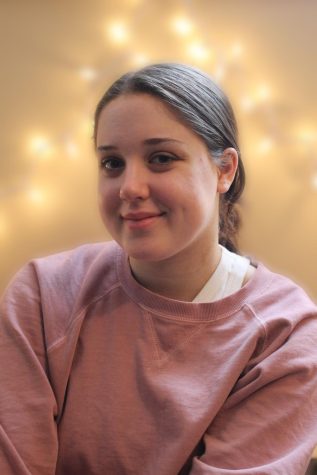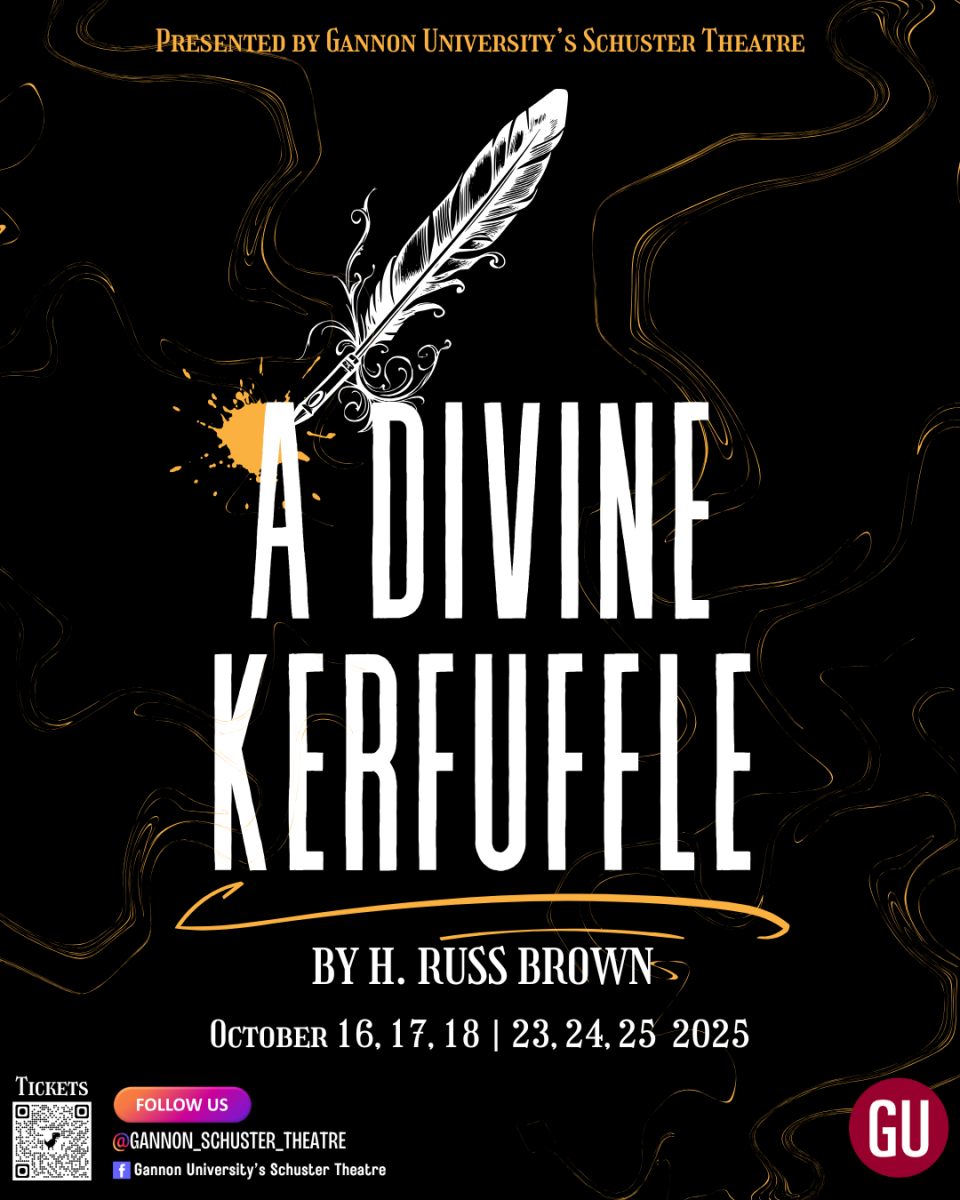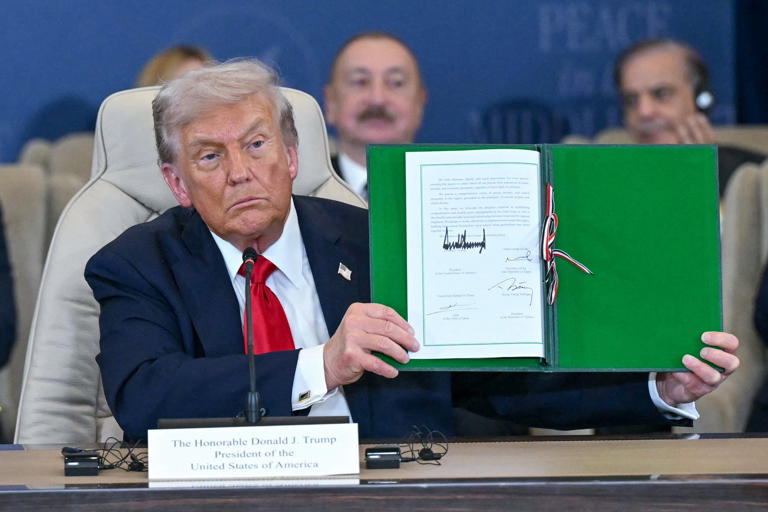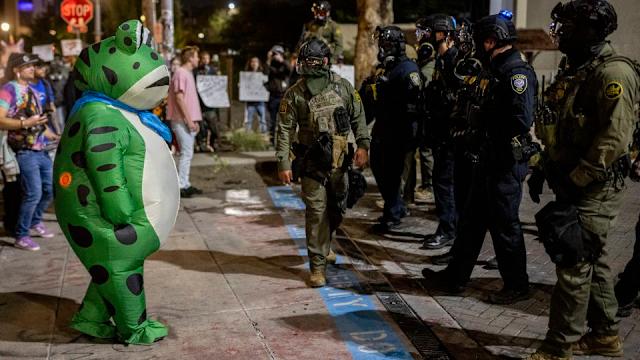Kerr presented service-learning award
Hands-on educational experience part of a complete philosophy education
November 16, 2021
Aaron Kerr, an associate professor in the philosophy program at Gannon University, was recently presented the “Excellence in Service Learning” Award by the Academic Community Engagement Committee for his work serving the Gannon and Erie communities.
Kerr, who holds a doctorate in philosophical theology, was nominated for the award by a colleague, and was chosen from many applicants and nominees.
Growing up, Kerr realized his love for service at a young age as part of being the middle child in a large family. He often had to mediate and share understandings, and his family was very concerned with the public and public service.
“I learned very early on that education is a relational experience whereby we learn most deeply with others, and so education is for community and it’s best done in community,” Kerr said.
Kerr also took an interest in philosophy early on in life.
“I’ve always had so many questions in my life,” he said.
“Philosophy gives you a way to begin to address these questions and will not leave these questions alone. Philosophy is so important for the existential question that Socrates first taught us to ask, which is ‘The unexamined life is not worth living, and what is good?’”
Kerr was hired at Gannon as an assistant professor of philosophy in the fall of 2012. Prior to that, he not only taught at other institutions, but also worked in construction.
One of the reasons Kerr merited this award was because of his instruction of a TRAVEL course, Philosophy of Place, which took place in eastern Kentucky. Students spent time with public servants, government officials and scholars and engaged in hands-on learning related to the environment.
“We went into various places and understood the environmental impacts of coal and culture and unemployment, and ended up building a bridge in the forest around Berea College and talking to foresters, and it was a tremendous experience for the students,” Kerr said.
Kerr integrated the principles of “Laudato si,” the second encyclical of Pope Francis, in this course, Christopher Magno, an associate professor in the criminal justice program at Gannon, said. “Laudato si” has the subtitle of “our common home,” and it stresses the importance of taking care of the environment in the context of Catholic social teaching.
Lydia Andraso, a senior environmental engineering major who took this course, said that through Kerr’s facilitation, she learned many valuable things and the connections made and lessons learned will endure forever.
“Through the time and service we gave, we gained friendship, gratitude, advice, knowledge, music, home cooking, comradery and most importantly, a strong sense of community,” Andraso said. “Dr. Kerr gave his all that week and sat down with the class every evening, after we were drained from a hard day’s work, to discuss what we had learned and the impacts of it all.”
Environmental Ethics, another one of Kerr’s courses, also helped him merit this award. This is an outdoor course taught at West Hall.
“Without the masks during COVID, I think students need it, I enjoy it and it helps to get attuned to the broader implications of education,” Kerr said.
Another way Kerr serves the Gannon community is by helping to facilitate the Gannon Goodwill Garden, which provides fresh produce to local food pantries and the underprivileged.
Maintaining this garden and serving the produce is another part of the Environmental Ethics class. For example, students not only picked apples in the class, but made apple pies and served them to the less fortunate at a local church.
This was to connect students to the process of food creation, hopefully allowing them to think more deeply about food before they consume or serve it, Maxwell Fulmer, a senior philosophy major, said.
“He has expressed that the first step toward connecting to the natural world and our fellow man is a connection to how we interact with each other, such as preparing food,” Fulmer said.
Service is not just about going out and doing good, Kerr said. Rather, it is part of a broader mindset.
“Service learning and service education are about getting students into the context of the public — a public that they are going to have to inhabit once they graduate,” Kerr said. “It’s more about helping students to contextualize their philosophy learning in light of public institutions, which is so needed, I think.”
Magno also said that service involves the process of understanding oneself in relation to society.
“The best measurement of learning is when you are learning at the same time you are changing the situation and society,” Magno said. “The best application is through action, and the action is service.”
This is especially important given Gannon’s location.
“If we live in the poorest zip code in Erie and we don’t do anything about it, that’s wrong,” Magno said. “We need to become part of the transformation of our neighborhood.”
Fulmer also said he has learned the importance of service from Kerr.
“Service is the difference between thinking about making a difference and actually making a difference,” Fulmer said.
“A critical part of being an empathetic person is recognizing that there are always those who may be less fortunate than yourself. Part of recognizing that privilege is working to try and make sure that everyone is welcomed and respected, in one way or another.”
Andraso said that Kerr works to build bonds with those he serves.
“Not only does Dr. Kerr do the physical work that comes with volunteering and service, but he does the hard work of listening to people and understanding the purpose and impact of that service, making those personal connections that build community,” Andraso said. “He dedicates so much of himself to help people, and he does so with an open heart.”
Andraso said that Kerr has encouraged her to do the same herself.
“Dr. Kerr has taught me how to use my mind in a new way and to open my ears and hear the people around me,” Andraso said. “Now, I have a greater love and patience for people.”
Kerr encourages his students to make more unconventional connections, Andraso said.
“Everything in this world is connected in some way, and he helps students to uncover that truth,” Andraso said. “We may have an idea of where things will lead, but it’s often that we deviate from that path.”
Kerr also attempts to make those connections with members of the Gannon community, Andraso said.
“Most times that I run into Dr. Kerr on campus, I see him deeply engaged in a conversation with a student or colleague,” Andraso said.
“He’s always available to lend an ear or word of advice. When passing folks in the hall, there is always a genuine smile from him and those he greets.”
Service is a large component of philosophy, Kerr said. Service learning gives students a tangible example of philosophy, which can sometimes be a vague and intangible concept.
“The concept becomes an embodied experience,” Kerr said. “That hands-on practice transforms students’ perceptions and their lives.”
These hands-on service learning courses connect to Gannon’s core value of service.
“They align very closely with the Gannon mission of helping students to know not only how to make right choices but helping students to know who it is that’s doing the choosing,” Kerr said. “When people come to Gannon, they really engage and come to understand the depth of their personalities — that’s aligned with the Catholic mission.”
Philosophy encourages students to think deeply about life and ponder the world they inhabit, Kerr said.
“It’s so helpful to get into a philosophy class and start to own your own freedom of your mind and your choices,” Kerr said.
However, Kerr said that the pandemic has shown that teaching needs a massive overhaul.
“I need to reevaluate my teaching and develop a deeper philosophy of education for the 21st century,” Kerr said. “It’s a great time to learn about this heart of teaching.”
Fulmer has seen firsthand how Kerr integrates hands-on service into the educational experience.
“Dr. Kerr has never made it a secret that he sees education as something that should be involved both in the classroom and in the real world,” Fulmer said. “I have seen him work hard to try and impress upon his students the importance of causing positive change within the world through both his lecture style and non-classroom coursework.”
These classes have been among Fulmer’s favorite classes he has taken throughout his time at Gannon.
“Dr. Kerr teaches very effective classes where humor, information and critical thinking are combined to create an engaging and thought-provoking experience,” Fulmer said. “Dr. Kerr’s attempts to integrate current events and issues into the content of his lessons have been remarkably effective at provoking thoughtful and interesting class discussions.”
Fulmer has experienced Kerr not only as a professor, but also as an adviser.
“He has been a source of constant support and understanding over my ideas of future careers, academic opportunities and professional development,” Fulmer said. “To put it simply, the excellent experience I’ve had at Gannon would not be the same without Dr. Kerr.”


